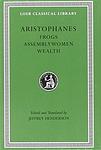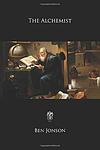The Greatest English, Greek "Satire" Books of All Time
Click to learn how this list is calculated.
This list represents a comprehensive and trusted collection of the greatest books. Developed through a specialized algorithm, it brings together 305 'best of' book lists to form a definitive guide to the world's most acclaimed books. For those interested in how these books are chosen, additional details can be found on the rankings page.
Genres
Satire is a genre of literature that uses humor, irony, and exaggeration to criticize and ridicule human vices, follies, and shortcomings. It is a form of social commentary that aims to expose the flaws and absurdities of society, politics, and culture. Satirical books often employ sarcasm, wit, and parody to challenge the status quo and provoke thought and reflection in readers. Satire can be both entertaining and thought-provoking, and it has been used throughout history as a powerful tool for social and political critique.
Countries
Date Range
Reading Statistics
Click the button below to see how many of these books you've read!
Download
If you're interested in downloading this list as a CSV file for use in a spreadsheet application, you can easily do so by clicking the button below. Please note that to ensure a manageable file size and faster download, the CSV will include details for only the first 500 books.
Download-
1. Lysistrata by Aristophanes
"Lysistrata" is a comedic play set in ancient Greece, where the women of Athens, led by the eponymous character, decide to withhold sexual privileges from their husbands and lovers in order to force them to negotiate a peaceful end to the Peloponnesian War. Along with the women of Sparta, they seize the Acropolis and the treasury, and through their non-violent resistance, they manage to bring about a reconciliation between the warring states. The play is a humorous exploration of gender roles and the power of passive resistance.
The 501st Greatest Book of All Time -
2. The Birds by Aristophanes
This ancient Greek comedy play revolves around two men who are fed up with the problems of human society and decide to create a utopian city in the clouds with the help of birds. Their city, 'Cloudcuckooland', becomes popular and attracts gods and humans alike, leading to a series of humorous and satirical events. The play is a satire on political and social life in Athens, poking fun at its democracy, bureaucracy, and warfare.
The 764th Greatest Book of All Time -
3. The Clouds by Aristophanes
"The Clouds" is a satirical play that critiques the intellectual and moral corruption of Athenian society by focusing on a father-son relationship. The father, in an effort to evade debt, sends his son to a school of sophistry to learn the art of manipulating language and logic to win arguments. The story explores themes of education, morality, and the conflict between traditional and modern values. The play is well-known for its critical portrayal of Socrates as a sophist and its comedic elements.
The 807th Greatest Book of All Time -
4. Northanger Abbey by Jane Austen
"Northanger Abbey" is a coming-of-age novel that follows the story of Catherine Morland, a young and naive girl who is invited to stay with the wealthy Tilney family at their estate, Northanger Abbey. Catherine's imagination is fueled by her love for gothic novels, leading her to create fantastical scenarios in her mind. As she navigates the complexities of society and falls in love, Catherine learns valuable lessons about the dangers of letting her imagination run wild and the importance of distinguishing reality from fiction.
The 998th Greatest Book of All Time -
5. The Knights by Aristophanes
"The Knights" is a satirical comedy that delves into the political landscape of ancient Athens, critiquing the city's leadership through the allegory of a household. The play focuses on the conflict between a noble but dimwitted horseman and a cunning and manipulative sausage-seller, both vying for the favor of their master, who represents the Athenian people. The sausage-seller, with the help of the chorus of knights, ultimately triumphs, symbolizing the hope for a new and better leader. The work is a pointed commentary on the demagoguery and corruption of the time, using humor and absurdity to explore themes of power, populism, and the responsibilities of citizenship.
The 2400th Greatest Book of All Time -
6. Elegies And Satires by Kostas Karyotakis
"Elegies and Satires" is a poignant collection that delves into the depths of existential despair, disillusionment, and the search for meaning in a modernizing world. The work is a reflection of the author's own struggles with depression and his critical view of societal norms and the alienation of the individual. Through elegiac poetry and sharp satirical pieces, the collection explores themes of loneliness, existential angst, and the absurdity of life, all conveyed with intense emotional depth and lyrical beauty. This literary work stands as a significant contribution to early 20th-century literature, offering a raw and introspective look at the human condition.
The 3791st Greatest Book of All Time -
7. The Assemblywomen by Aristophanes
In this ancient Greek comedy, the women of Athens, fed up with the mismanagement and corruption of male politicians, disguise themselves as men to take over the city's assembly. Once in power, they institute a series of radical reforms, including the communal sharing of wealth and property, and the requirement that the most attractive men must sleep with the ugliest women first to ensure fairness in love. The play satirizes gender roles, political life in Athens, and the utopian solutions to societal problems, all while delivering a humorous yet pointed critique of the effectiveness of democratic governance and the nature of power.
The 4082nd Greatest Book of All Time -
8. The Wasps by Aristophanes
"The Wasps" is a classical Greek comedy that satirizes the Athenian legal system and the citizenry's obsession with litigation. The play revolves around an elderly man, Philocleon, who is addicted to serving on juries and the comical lengths to which his son, Bdelycleon, goes to cure him of this addiction. The son eventually manages to keep his father at home by staging a mock trial of household pets, highlighting the absurdity of the legal proceedings. Through sharp wit and humor, the play critiques the flaws of democracy and the frivolity of the Athenian courts, while also exploring themes of generational conflict and the nature of justice.
The 4151st Greatest Book of All Time -
9. The Frogs by Aristophanes
"The Frogs" is a classic comedic play that delves into the world of Greek mythology and literature. The story follows the god Dionysus as he descends into the underworld with his slave Xanthias. Dionysus seeks to bring back the recently deceased tragedian Euripides to save the city from its cultural decline. However, upon arrival, he finds himself amidst a heated debate between Euripides and Aeschylus, another deceased playwright, over who is the greatest tragedian. A competition ensues, judged by Hades, leading to a series of humorous critiques of their plays and styles. The play is a satirical examination of Athenian society and the role of art and culture, filled with witty dialogue and commentary on the nature of theater.
The 4151st Greatest Book of All Time -
10. The Malcontent by John Marston
"The Malcontent" is a Jacobean-era tragicomedy that delves into themes of political intrigue, revenge, and moral corruption within a court setting. The play centers around the character Malevole, the disguised and deposed Duke Altofronto, who maneuvers through a web of deceit as he seeks to expose the hypocrisy and villainy of those who usurped his throne. Through a series of satirical and darkly humorous episodes, the protagonist navigates a treacherous court filled with unscrupulous characters, ultimately aiming to restore justice and reclaim his rightful position. The work is known for its biting wit, complex characterizations, and exploration of the human condition, reflecting the moral ambiguities of the time.
The 6951st Greatest Book of All Time -
11. Satires by Lucian
"Satires" is a collection of witty and critical dialogues and essays that lampoon the pretensions and follies of the author's contemporary society. Using sharp humor and irony, the work targets various subjects, including philosophers, poets, historians, and orators, exposing their hypocrisy and vanity. The author employs a range of fictional scenarios, fantastical journeys, and dialogues with gods and historical figures to satirize the intellectual and social conventions of the day, challenging the reader to question the nature of truth, the value of tradition, and the role of intellectuals in society. Through its engaging and often humorous critiques, the book invites reflection on human behavior and the pursuit of knowledge.
The 7168th Greatest Book of All Time -
12. The Alchemist by Ben Jonson
The book in question is a comedic play set in early 17th-century London, where a clever trio of con artists—Subtle, Face, and Dol—takes advantage of urban fear and superstition during a plague outbreak to swindle a series of gullible victims. Using the guise of an alchemist capable of performing miraculous transformations, the group promises wealth and power to their targets, spinning a web of deceit and exploiting human greed and folly. The play unfolds as a series of farcical episodes, culminating in the inevitable unraveling of their schemes, offering a satirical critique of human credulity and the pretensions of pseudo-science.
The 9609th Greatest Book of All Time -
13. A Mad World, My Masters by Thomas Middleton
This satirical comedy from the early 17th century presents a tapestry of London life through a series of interwoven plots featuring a diverse cast of characters, including a con artist, a lustful knight, and a cunning courtesan. The play delves into themes of deception, social corruption, and the pursuit of pleasure, revealing the vices and follies of the city's inhabitants. With a sharp wit and an unflinching eye for the absurdities of human behavior, the narrative unfolds in a series of comedic escapades, ultimately offering a biting critique of a world gone mad with greed and hedonism.
The 10968th Greatest Book of All Time
Reading Statistics
Click the button below to see how many of these books you've read!
Download
If you're interested in downloading this list as a CSV file for use in a spreadsheet application, you can easily do so by clicking the button below. Please note that to ensure a manageable file size and faster download, the CSV will include details for only the first 500 books.
Download







